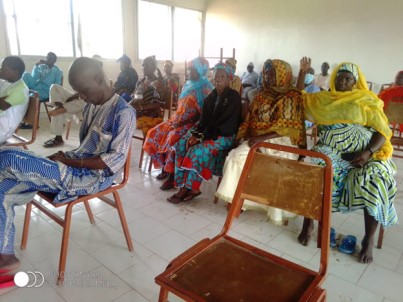By Ndey Sowe
The United Nations Population Fund (UNFPA) has kick-started a campaign to end unmet needs for family planning and others in the country on Friday 10th June 2021.
The theme for this year’s campaign is “I am for Zero”, and this is a platform to promote the Agency’s three transformative results: zero unmet for family planning; zero preventive maternal deaths, and zero gender-based violence and harmful practices.
Lamin Camara, Program Analyst on Adolescents and Youth at UNFPA, said the campaign will introduce new activities such as School outreachs on menstrual health and hygiene management and out-of-School sensitisation on gender-based violence among others.
“In the context of Covid-19 and the emergence of vaccines, the campaign will also strengthen risk communication and community engagement especially in dispelling myths, misconceptions and misinformation around the uptake of vaccines and will encourage community residents to be vaccinated,” he added.
In 2016, UNFPA-Gambia initiated the Family Planning campaign which used a multi-disease approach as an entry-point to Family Planning. This Camara said, was done through strategic partnerships with the SOS Mother’s Clinic for Cervical and Breast Cancer screening and the Gambia Family Planning Association, to deliver sexual and reproductive health information and services including modern contraceptive methods and HIV Counseling and Testing.
He disclosed that the 2016 campaign also engages young people in football matches and door-to-door sensitisation on sexual and reproductive health (SRH) and creates a platform for heads of households to discuss the importance of male involvement in family planning and maternal health through an initiative dubbed ‘husband Schools.’
“Having registered significant achievements through this campaign over the past years, UNFPA is bringing it back under a new theme: ‘I am for Zero’, ” he said.
According to the 2019/2020 Demographic and Health Survey (DHS), 10% of women aged 25-49 were first married by age 15, with the percentage of women married by age 18 increasing to 37%. The survey disclosed that 81% of women are married by age 25 with the median age of marriage among women of 25-49 years being 19.4% (DHS); that this indicates a high rate of child marriage with risks of longer lifetime fertility and its consequences on socio-economic development.
With a current Total Fertility Rate (TFR) of 4.4 as compared to 5.6 as per the DHS of 2013, Contraceptive Prevalence Rate (CPR) of 19% compared to 9% in 2013, and an unmet need for family planning of 24% amongst married women and 45% among sexually active unmarried women, the population will likely double by 2030 if those gains are not sustained, despite the significant gain.
The campaign for the new theme is a follow up to the success of similar Family Planning campaigns conducted in late 2016 and early 2017 in NBR, WCR, CRR URR and LRR respectively. The campaign will address unfinished business in some of those regions, and will specially target young women and men both in and out of School in hard-to-reach communities in Central River North, Baddibu in the North Bank Region and the Wuli or Fatoto in the Upper River Region (URR).



















